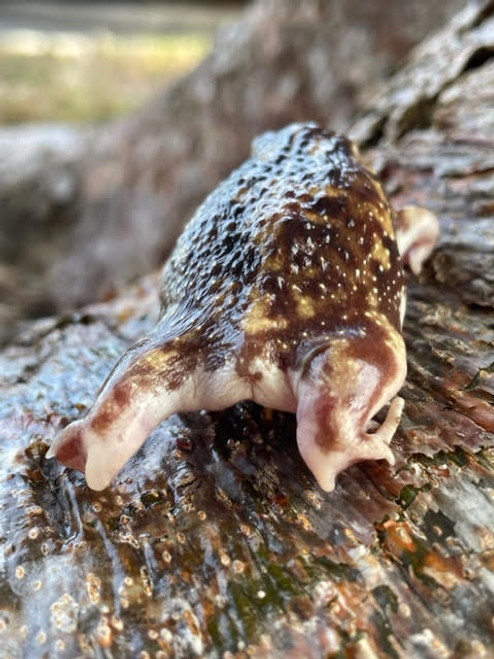Rain Frog for Sale: Boost Your Collection with Unusual and Unique Amphibians!
Rain Frog for Sale: Boost Your Collection with Unusual and Unique Amphibians!
Blog Article
Common Wellness Issues in Reptiles: Signs and Solutions
In the intricate world of reptile care, understanding the typical health and wellness problems that may affect these one-of-a-kind creatures is vital in guaranteeing their wellness. Whether it's grappling with parasitic problems, navigating dehydration concerns, or addressing skin disorders that materialize in subtle ways, being attuned to the signs and equipped with the knowledge of efficient services is necessary for any reptile proprietor.
Breathing Infections
Breathing infections in reptiles can considerably influence their general wellness and need punctual interest from knowledgeable veterinarians. In reptiles, respiratory system infections can be especially testing to diagnose and treat due to their special anatomy and physiology.
Treatment for respiratory infections in reptiles generally involves a mix of encouraging care, such as maintaining correct humidity degrees and temperature gradients in the enclosure, as well as targeted medicine to attend to the certain virus in charge of the infection. It is critical for reptile proprietors to monitor their family pets closely for any type of signs of respiratory system distress and look for veterinary treatment at the earliest indication of an issue. With prompt intervention and ideal therapy, numerous reptiles can recoup fully from respiratory system infections and return to normal tasks.

Metabolic Bone Disease
What variables add to the advancement of Metabolic Bone Illness in reptiles?
Metabolic Bone Disease (MBD) in reptiles is mainly triggered by an absence of proper calcium, phosphorus, and vitamin D3 levels in their diet plan. When reptiles do not obtain ample calcium, either via their food or correct UVB exposure for vitamin D3 synthesis, they are at a high risk of developing MBD. Reptiles with diet plans low in calcium or unbalanced calcium to phosphorus ratios are particularly at risk. In addition, inadequate exposure to UVB light stops reptiles from synthesizing vitamin D3, which is critical for calcium absorption and bone health and wellness.
Not enough humidity levels can additionally influence a reptile's ability to metabolize calcium properly. Regular veterinary examinations, proper husbandry practices, and a well balanced diet regimen are vital to protect against Metabolic Bone Illness in reptiles.
Parasitical Invasions
Parasitic infestations position a substantial health risk to reptiles, influencing their overall health and calling for prompt vet interest. Reptiles can be influenced by various parasites, consisting of mites, ticks, internal worms, and protozoa. These bloodsuckers can trigger a variety of signs and symptoms, such as weight management, sleepiness, skin inflammation, looseness of the bowels, and even death if left neglected.
One usual parasite found in reptiles is the mite, which can create skin stress, inflammation, and anemia. Ticks are an additional exterior bloodsucker that can transmit illness and trigger discomfort to the reptile. Interior bloodsuckers like worms and protozoa can cause digestive system concerns, malnutrition, and damage the reptile's body immune system.
To diagnose a parasitical problem, a veterinarian might execute fecal examinations, skin scrapings, or blood tests. Therapy often involves deworming medicines, antiparasitic bathrooms, or in severe instances, a hospital stay. Preventative actions such as regular vet examinations, correct hygiene, and quarantine procedures for new reptiles can assist decrease the risk of parasitical infestations and guarantee the well-being of reptile family pets.
Dehydration and Hydration Issues
Dehydration in reptiles can dramatically impact their health and well-being, demanding timely treatment and suitable hydration management. Reptiles are vulnerable to dehydration due to numerous elements such as insufficient water consumption, high environmental temperature levels, and particular wellness problems. Signs of dehydration in reptiles include sunken eyes, sleepiness, loss of skin elasticity, and lowered peeing. If left untreated, dehydration can pop over to this site result in significant wellness problems and also be deadly to the reptile.
To stop dehydration, reptile owners need to guarantee that their pets have access to clean water in any way times. The water recipe should be big enough for the reptile to soak in if required, especially for types that take in water through their skin. Additionally, maintaining appropriate moisture levels in the reptile's enclosure and providing normal baths i thought about this can aid stop dehydration.
In situations of dehydration, it is crucial to seek vet treatment immediately. A vet may administer liquids either orally or through injections to rehydrate the reptile. It is necessary to attend to the underlying root cause of dehydration to stop recurrence and guarantee the reptile's overall health.
Skin Conditions

Verdict

Breathing infections in reptiles can considerably impact their total wellness and call for punctual interest from seasoned veterinarians (rain frog for sale). Preventative actions such as normal veterinary examinations, appropriate health, and quarantine procedures for new reptiles can assist minimize the risk of parasitical infestations and ensure the wellness of reptile animals
If left untreated, dehydration can lead to significant health and wellness problems and even be deadly to the reptile.
Consistently inspecting your reptile for any adjustments in skin color, look, or structure can aid in very early discovery and therapy of skin conditions, promoting the total health and wellness and wellness of your scaly buddy. - rain frog for sale
In final thought, reptiles are susceptible to numerous health issues such as respiratory system infections, metabolic bone illness, parasitical problems, dehydration, and skin conditions.
Report this page